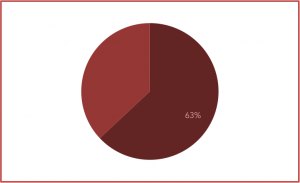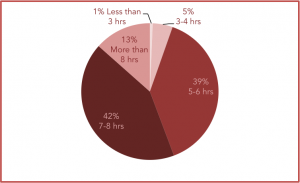
Is there a limit to pressure? How much sleep is too little sleep? It is the 21st century, and we have a nation of adults and teenagers who are horribly sleep deprived.
The Washington Post remarked that the teenagers in the U.S. are facing a “sleep epidemic.” Increased academic workloads are often cited as a cause of this epidemic in teenagers. A study done by the Journal of Adolescent Health found that 23% of teens surveyed reported going to sleep at 11:15 pm or later. The group included teenagers from seventh to twelfth grade.
The study identified that a late bedtime actually led to “worse educational outcomes and emotional distress.” It found that short sleep duration often resulted in a lower GPA.
Another study which surveyed high school students revealed—unsurprisingly—that 68.9% of students reported insufficient sleep. A majority of that group was made of juniors and seniors.
One recurring issue is the weekend, at least in terms of quality of sleep. Students commonly receive more sleep on the weekends than they do during the school week—this presents a problem because an irregular sleep pattern induces greater drowsiness than a consistent sleep-wake cycle.

Unfortunately, this isn’t merely a teen problem. The American Academy of Sleep Medicine cites one in five adults as not getting adequate sleep. Polls by the Sleep Foundation found that 29% of the adults surveyed fell asleep at work during that month or had felt like it, and 36% dozed off in the car.
The National Sleep Research Project states that the “record for the longest period without sleep is 18 days, 21 hours and 40 minutes during a rocking chair marathon. The record holder reported hallucinations, paranoia, blurred vision, slurred speech and memory and concentration lapses.”
The sleep deprived teenagers of the US may not be experiencing such extreme sleep deprivation, but not getting the seven to eight hours needed can have horrible effects over a period of time.
The Oracle surveyed Archer students from sixth through twelfth grades about their sleep habits.

When students were asked if they believe they get enough sleep, 44% answered “No,” and 30% said only “some of the time.” The survey found that 42% get an average of seven to eight hours of sleep per night, and 39% gets five to six. Only 13% reported getting more than eight hours a night.
When asked how much of an effect homework has on their sleep on a scale of 1 to 5, 40% of students chose “4”—indicating that their homework load greatly affects how much sleep they are getting.
With adults and teenagers receiving less and less sleep due to work, school—or both at once—one can only wonder: Is sleep a thing of the past?
